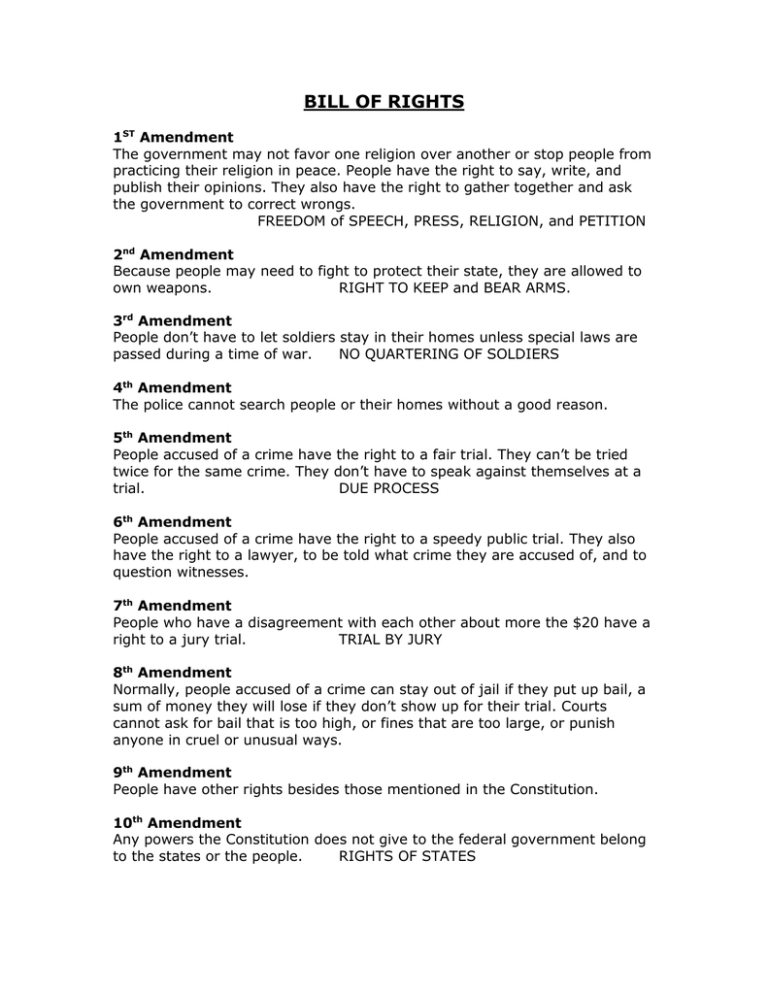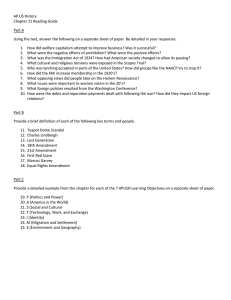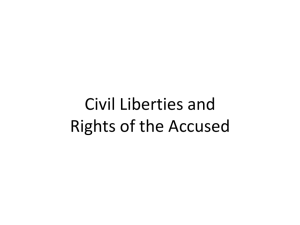Bill of Rights: First 10 Amendments Explained
advertisement

BILL OF RIGHTS 1ST Amendment The government may not favor one religion over another or stop people from practicing their religion in peace. People have the right to say, write, and publish their opinions. They also have the right to gather together and ask the government to correct wrongs. FREEDOM of SPEECH, PRESS, RELIGION, and PETITION 2nd Amendment Because people may need to fight to protect their state, they are allowed to own weapons. RIGHT TO KEEP and BEAR ARMS. 3rd Amendment People don’t have to let soldiers stay in their homes unless special laws are passed during a time of war. NO QUARTERING OF SOLDIERS 4th Amendment The police cannot search people or their homes without a good reason. 5th Amendment People accused of a crime have the right to a fair trial. They can’t be tried twice for the same crime. They don’t have to speak against themselves at a trial. DUE PROCESS 6th Amendment People accused of a crime have the right to a speedy public trial. They also have the right to a lawyer, to be told what crime they are accused of, and to question witnesses. 7th Amendment People who have a disagreement with each other about more the $20 have a right to a jury trial. TRIAL BY JURY 8th Amendment Normally, people accused of a crime can stay out of jail if they put up bail, a sum of money they will lose if they don’t show up for their trial. Courts cannot ask for bail that is too high, or fines that are too large, or punish anyone in cruel or unusual ways. 9th Amendment People have other rights besides those mentioned in the Constitution. 10th Amendment Any powers the Constitution does not give to the federal government belong to the states or the people. RIGHTS OF STATES

